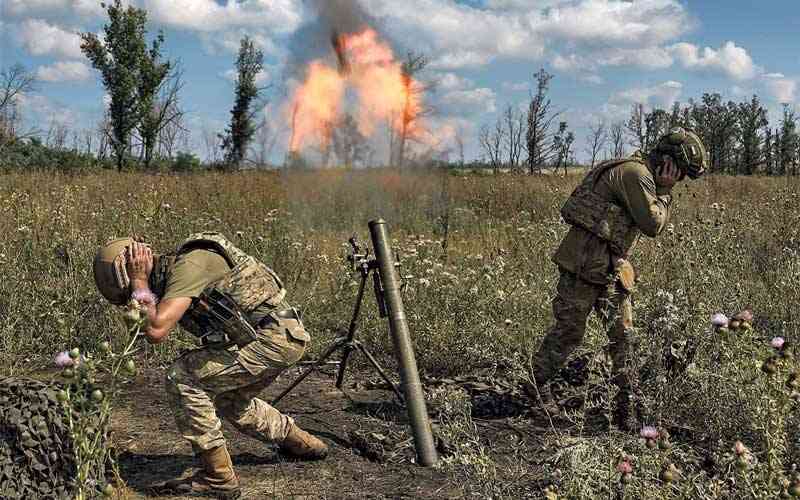
WHEN the war in Ukraine erupted last year in February, it was met with mixed reactions. For some, it was none of their business, while for those who had a broader perspective of the situation, it was everyone’s business.
It only took just a month for the world to realise that the war should not have been allowed to happen in the first place because both Russia and Ukraine held a major stake in global economic affairs. Because of political egos, the war continued anyway and the world suffered.
Today the world is seized with yet another war in the Middle East as if the war in Ukraine is over or does not matter anymore. There is still a war in Ukraine causing suffering to millions of people and impacting global economies. It may not be making the headlines because of the unfolding situation in the Middle East. The focus of this instalment is not necessarily on these two wars, but on the connection between global wars and the economic performance of poor countries.
Let’s look at a few examples. The South African rand weakened in October and has struggled to regain its value against the United States dollar due to a plunge in oil prices. This has affected countries such as Namibia, Lesotho and Eswatini which are part of the rand territory. In Angola and Nigeria, the Kwanza and the Naira lost 40% of their value against the United States dollar.
These are the leading oil-producing countries in Africa. In Zambia, a country that has so far demonstrated that political power can change hands via electoral processes, the prices of essential commodities have spiked by almost 15% in the last six months.
In Malawi, on November 8, the central bank directed financial institutions to trade the Kwacha at ZK1 700 to US$1, down from ZK1 180,29. This represents a devaluation of 30,6% and the second time in 18 months that Malawi has done so.
In Kenya, the government has introduced a slew of taxes which have reduced disposable incomes among workers, while in other east African countries, the prices of oil spiked after the removal of subsidies or adjustments to the global market prices. Zimbabweans are also bracing for a slew of proposed taxes following the national budget presented by Finance minister Mthuli Ncube.
While these depressing economic measures are explained differently by different governments, the fact of the matter is, a strong link exists between global wars, local economies and poverty. What is happening right now is that the international financial system, which sustains most economies, is seized with the two major global wars thus reducing or paying no attention to developing countries.
- Malawi chiefs shut down Chinese owned mines
- Malawi chiefs shut down Chinese owned mines
- Outcry as Chinese miners scoop precious stones from Malawi communities
- Outcry as Chinese miners scoop precious stones from Malawi communities
Keep Reading
For that reason, developing countries must resort to taxing their people to sustain their earnings. Noting that most developing countries still owe the same international financial institutions that are not prioritising them, possibly succumbing to the demands of ongoing wars, and they are still obligated to pay their debts. Since February last year, Ukraine was set to receive nearly US$160 billion from the two major financial institutions, while developing countries are forced to squeeze their citizens for income simply because they are not a priority right now.
The financial figures for the war in the Middle East are still unclear, but the following points are among those worth noting.
Firstly, wars determine global financial priorities not poverty. Secondly, by owing financial institutions, developing countries are indirectly funding global wars which are part of global capitalism. Thirdly, the dependency on the supply of foreign currencies in developing countries is a major issue. Once there is a short supply of foreign currency, people turn to alternative sources which dents economies and creates parallel markets.
Evidence from 80% of the countries over the past half-decade demonstrates the link between global conflicts and poor economic performance of developing countries. This is because of several reasons, among which include that wars disrupt the global trading and monetary systems and developing countries tend to be deprioritised in the process which makes them more vulnerable to the knock-on effects of wars for which they do not have interests.
The impact of global wars does not end there. If global wars affect the economic performance of developing countries, it follows that the poverty situation of their people worsens pushing more of them into destitution — a situation that often triggers domestic political instability. The inflation and recession that is being experienced in some African countries has the potential of causing justifiable internal conflicts — a scenario that may derail most economies from recovering.
Internal conflicts do not just end there. They also erode what remains of the economies, thus pushing countries further into recessions. And the cycle continues and traps people and their countries into poverty and strife. This is why wiser countries build their economies domestically and ensure that those economies tap on local markets and capacities and in case external markets encounter shocks, they have backup system to keep them floating until the global markets stabilise.
- Tapiwa Gomo is a development consultant based in Pretoria, South Africa. He writes here in his personal capacity.








